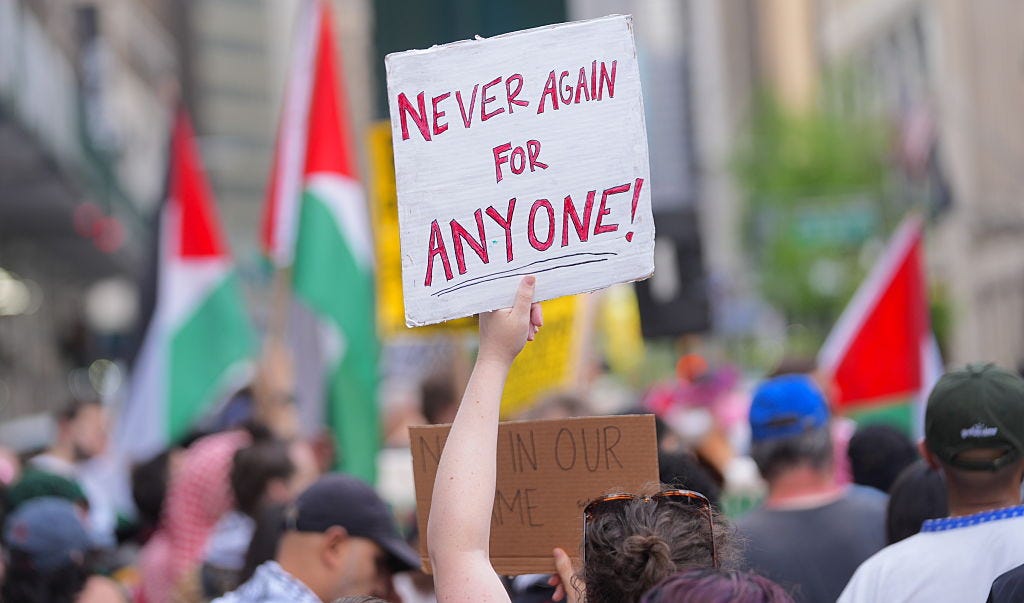Stories of empire
In our second live discussion of "One Day," let's come together around the power of language to shape us
Join us today, Wednesday, June 11, at 12:30 p.m. Eastern for our second Book Club discussion of Omar El Akkad’s One Day, Everyone Will Have Always Been Against This. Today’s conversation will take place on Zoom — for a link and details on how to join, scroll to the bottom of this post.
Books are tentpoles. They incite, and inform. They can be a welcome distraction, or invite an awakening — or both! In these times, we need to be incited. To gather together around shared ideas, even amid disagreement — and that will happen later today. Join us as we collectively explore Omar El Akkad’s provocative and soul-searching One Day, Everyone Will Have Always Been Against This, which illuminates the missed signals that lead us to denial. Can it guide us to better understanding? As the news gets darker, how do books like this one play a role? Let’s talk about it this afternoon! And then we’ll meet with the author live next Wednesday, June 18 at 12:30 p.m. Eastern.
In our Sunday thread this week, readers challenged the way we use language, and the way we tell ourselves stories. Book Club member Katy Evans-Bush wrote, “the U.S. tells itself things about itself that aren't true, and it believes them, and thinks that is patriotism; I think the only way to reach salvation is going to be to do what Germany did after the War, and really LOOK at ourselves, be prepared to do the hard work, and rebuild society from the bottom up.” For reader Susan Miville: “the sanitized vocabulary and phrasing such as ‘collateral damage,’ ‘detainees,’ ‘enhanced interrogation,’ are means by which we distance ourselves from atrocities, and in a sense relieve us from feeling guilt about what is happening.” And reader Hanna Pollin-Galay brought things back to the real human impact of the war: “I wake up with nightmares and flashbacks from October 7th. Sometimes it’s from my own experiences as an Israeli and holding my 7-year-old as she says, ‘I don’t want to die,’ and other times it’s nightmares about what I know the army is doing to Palestinian children in Gaza. Complexity is not a cop out.”
If you missed Sunday’s post (click on the link below to revisit our discussion guide for this week’s questions) or you’ve thought more about the book, drop your ideas for what you want to discuss today in the comments below.




